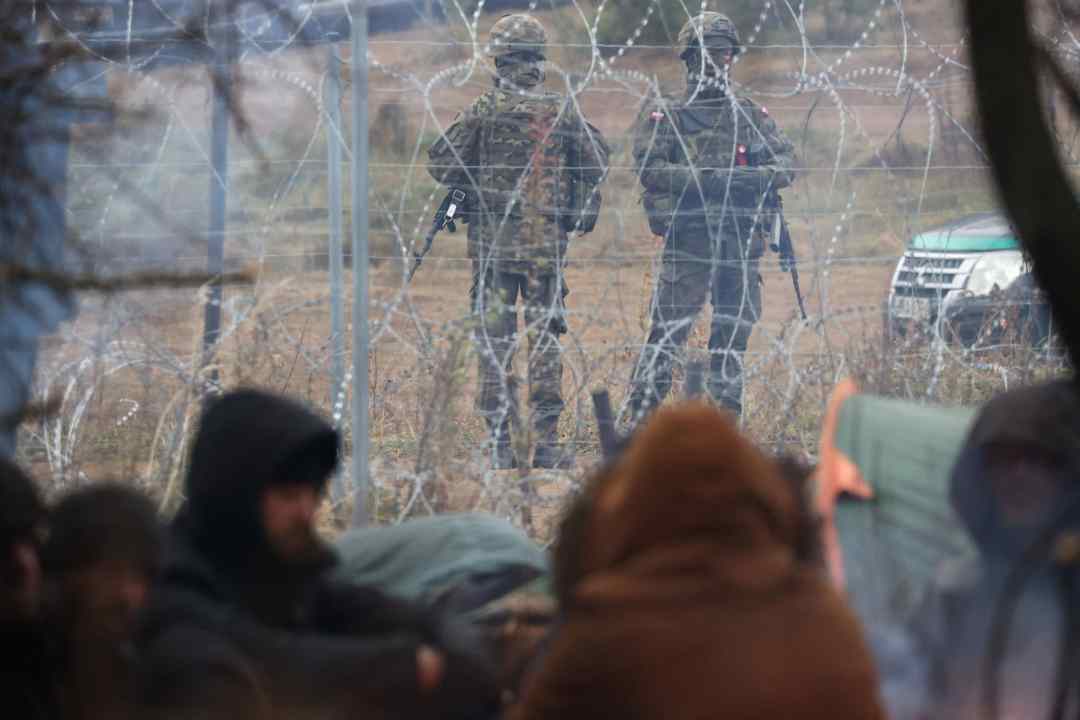In the cold, damp forest lining the border between Poland and Belarus, thousands of refugees flown over from the Middle East have waiting to cross into the EU for days. Belarusian riot police are shoving them away from their gates and towards Poland, where only more forces await.
The Belarusian dictator Alexander Lukashenko has recently been in conflict with the EU, which has imposed sanctions on his regime after last year’s contested elections which many believe to have been rigged. Lukashenko is pushing refugees towards Poland to be pawns in a fight, with the backing of Putin.
The refugees find themselves between a rock and a hard place: in front of them, a Polish government who looks good appearing tough against migration and Lukashenko. Behind them, a dictator who enjoys almost unlimited Russian backing and has absolutely nothing to lose from the current stand-off. And, from where they stand, the coming cold.
A third player is quietly stoking the fire, one that von der Leyen dares not name: Turkey
The EU’s reaction came from Ursula von der Leyen, who called for extended sanctions, and possible measures against third-country airlines involved in human trafficking. But who are these third countries?
In the background of the great geopolitical game, a third player is quietly stoking the fire, one that von der Leyen dares not name: Turkey.
In March last year, the very same scenes we’re witnessing in the Polish borders unfolded in the borders between Greece and Turkey. Now, Erdogan is reportedly allowing refugees to board planes from Istanbul to Minsk, from which they travel on to Poland. Human beings are being weaponised to destabilise EU countries, and Europe is silent in response.
Erdogan has practice. In March last year, thousands of refugees were driven from the Syrian border to the Greek borders by Erdogan’s regime. Much like Lukashenko now, he hoped for bloodshed. Unfortunately, the Greek government at the time obliged.
Europe’s solution was to let Greece get on with it, while core countries occasionally published a lukewarm condemnation. But this kind of silence comes with a price. Now Turkey looks on with glee as Russian and Belarus once again cause trouble in the EU’s borders. Why wouldn’t it? No significant price was paid for its actions last March. Europe has trapped itself and is at Erdogan’s mercy, as it pays him billions to keep Middle Eastern refugees in Turkey.
Germany, the greatest geopolitical liability at the heart of Europe, is so concerned about this deal and its own long-standing warm relationship with Turkey that it will go out of its way to stop any serious actions against it. And it would perhaps be a minor issue if those sympathies, or at least dependencies, didn’t also extend to Russia.
So as more planes leave Istanbul for Minsk, loaded with unfortunate souls that will be used as canon fodder in this geopolitical game they have no part in, we’re still pretending that this is only about Lukashenko and Russia.
If Europe doesn’t admit to the reality of its shared border to the east, but instead keeps playing a game in which malicious actors can somehow be kept happy at the expense of allies, only cruelty and further escalation lie in its future. Its much-publicised principles of respect for human rights and decency will be nothing but meaningless words on paper.







Comments